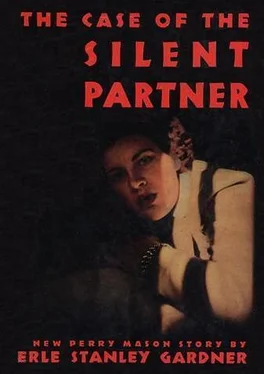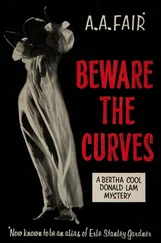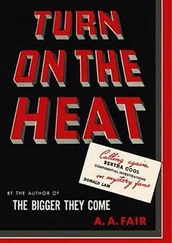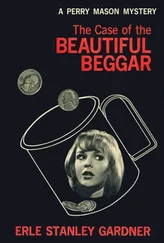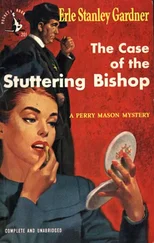Erle Gardner - Case of the Silent Partner
Здесь есть возможность читать онлайн «Erle Gardner - Case of the Silent Partner» весь текст электронной книги совершенно бесплатно (целиком полную версию без сокращений). В некоторых случаях можно слушать аудио, скачать через торрент в формате fb2 и присутствует краткое содержание. Город: New York, Год выпуска: 1940, Издательство: William Morrow, Жанр: Классический детектив, на английском языке. Описание произведения, (предисловие) а так же отзывы посетителей доступны на портале библиотеки ЛибКат.
- Название:Case of the Silent Partner
- Автор:
- Издательство:William Morrow
- Жанр:
- Год:1940
- Город:New York
- ISBN:нет данных
- Рейтинг книги:4 / 5. Голосов: 1
-
Избранное:Добавить в избранное
- Отзывы:
-
Ваша оценка:
- 80
- 1
- 2
- 3
- 4
- 5
Case of the Silent Partner: краткое содержание, описание и аннотация
Предлагаем к чтению аннотацию, описание, краткое содержание или предисловие (зависит от того, что написал сам автор книги «Case of the Silent Partner»). Если вы не нашли необходимую информацию о книге — напишите в комментариях, мы постараемся отыскать её.
Case of the Silent Partner — читать онлайн бесплатно полную книгу (весь текст) целиком
Ниже представлен текст книги, разбитый по страницам. Система сохранения места последней прочитанной страницы, позволяет с удобством читать онлайн бесплатно книгу «Case of the Silent Partner», без необходимости каждый раз заново искать на чём Вы остановились. Поставьте закладку, и сможете в любой момент перейти на страницу, на которой закончили чтение.
Интервал:
Закладка:
“I will grant you a continuance to enable you to prepare counter affidavits.”
“But I don’t care for a continuance, unless counsel stipulates the restraining order may be vacated in the meantime.”
Frank Labley jumped to his feet, his manner indicative of indignation. Judge Grosbeck waved him down to his chair, smiled, and said, “Very well, Mr. Mason. The court will hear your witnesses.”
Labley said, “I’ll stand on my affidavits and the verified complaint in the case for my showing, except that I may bring matters out on cross-examination of the witnesses called — and, of course, reserving the right to put on rebuttal testimony.”
“Very well. Proceed, Mr. Mason.”
Mason said, “I will call the plaintiff, Mr. Peavis.”
Peavis slouched forward, held up his right hand, was sworn, and took the witness chair, where he sat regarding Mason with calm hostility.
“You’re the plaintiff in this action, Mr. Peavis, are you not?”
“Just a moment,” Labley interposed, jumping to his feet before Peavis could answer the question. “Before any questions are answered, I feel I am entitled to know whether Mr. Mason has produced in court the stock certificate in response to the subpoena duces tecum .”
Mason bowed. “I have it here,” he said.
“That identical stock certificate?” Labley asked with surprise.
“Yes.”
Labley sat down, looking rather dazed.
A plain-clothes officer, sprawled out in the back row of chairs, suddenly straightened, got to his feet, and tiptoed from the courtroom.
Judge Grosbeck regarded Mason with thoughtful silence.
“Answer the question,” Mason said to Peavis.
“Yes, I am.”
“You have been trying to buy an interest in the Faulkner Flower Shops for some time, have you not?”
“I have.”
“You knew that certain shares of stock were in the name of Carlotta Lawley?”
Peavis said, “Let’s save a little time, Mr. Mason. I’m a businessman. I saw there was an opportunity to get control of the Faulkner Flower Shops. I knew that I couldn’t buy the stock myself. I approached Harvey J. Lynk and told him that I’d pay a certain price for the stock if he could get it.”
“Mr. Lynk was a gambler?”
“I don’t know, and I don’t care. I made him an offer for the stock. He advised me that he had it.”
“Ah,” Mason said, his tone showing his interest. “Let’s have that answer again, Mr. Reporter.”
The court reporter read the answer.
Peavis said hastily, “That is, I told Lynk to get it for me.”
“Now, let’s get this straight,” Mason said. “Did you tell him you’d pay a certain price for the stock, or did you tell him to get it for you?”
“Objected to as incompetent, irrelevant, and immaterial. It’s argumentative, a mere question of splitting hairs.”
Mason smiled. “It goes to the very gist of the action, Your Honor. If Mr. Peavis hired Mr. Lynk to get the stock for him as his agent, then the moment the stock came into Mr. Lynk’s possession, the title really vested in Mr. Peavis.”
Peavis nodded vehemently.
“If, on the other hand,” Mason went on, “Peavis merely communicated to Lynk a willingness to pay a certain price for the stock, and Lynk secured the stock, but it was taken from his possession before he had an opportunity to sell to Mr. Peavis, then Peavis had no title. He hoped to buy the stock. He had no vested interest in it.”
“That,” Judge Grosbeck ruled, “is quite apparently the law.”
Peavis said, “I’ll gladly answer that question. I hired Mr. Lynk as my agent to get the stock.”
“Did you give him any money?”
“Well, no. But he knew that the money would be forthcoming as soon as he had reason to call for it.”
“You mean as soon as he had the stock?”
“Well—” Peavis glanced at his lawyer, then glanced hurriedly away.
“Can’t you answer that question?” Mason asked.
“No,” Peavis said. “The stock didn’t have anything to do with the payment of money. I hired him to get the stock. He was my agent.”
“And how did you get in touch with Mr. Lynk?”
“Objected to,” Labley said promptly, “as incompetent, irrelevant, and immaterial. It makes no difference how the plaintiff made his contacts with Mr. Lynk. The point is that he made them.”
“Of course,” Judge Grosbeck pointed out, “this man is an interested party, a hostile witness, a...”
“If the court please,” Mason interrupted, “I’ll be willing to hold the question in abeyance. I don’t wish to take up the court’s time unduly. I’ll let Mr. Peavis step down, and call another witness.
“If subsequent testimony makes it necessary for me to examine Mr. Peavis on this point, I think the court will appreciate, by that time, the relevancy of the facts sought to be ascertained.”
“I don’t see how they can be pertinent,” Labley insisted.
“Well, we’ll let the question remain in abeyance as Mr. Mason has suggested,” Judge Grosbeck ruled.
Mason said, “Step down, Mr. Peavis. Mr. Coll, will you take the stand please?”
Sindler Coll took the oath as a witness with manifest reluctance. He seated himself on the witness stand and appeared very ill at ease.
“How long have you known Mr. Peavis?” Mason asked as soon as the witness had given his name and address to the court reporter.
“Almost ten years.”
“What’s your occupation?”
“I’m a sharpshooter.”
“What do you mean by that?”
“Well, I speculate. Wherever I see an opportunity to make a profit, I pounce on it.”
“And Peavis approached you with reference to getting this stock?”
“He did.”
“And you had a conversation with Peavis as to what he was ready to do, and then you passed that word on to Mr. Lynk, did you not?”
“That’s right.”
“In other words, you acted as the go-between?”
“Yes, sir.”
“Now, so far as you know, Mr. Peavis never met Mr. Lynk.”
“Well... yes, sir, I think he did.”
“Oh, he did?”
“Yes, sir.”
“When?”
“Well, that was the night of the tenth.”
“The night Lynk was murdered?”
“Well, he was murdered early — no, I guess that’s right. I guess he was murdered at midnight of the tenth.”
“How do you fix the time?”
“On what I’ve read in the papers.”
“When did you last see Mr. Lynk?”
“On the afternoon of the tenth.”
“About what time?”
“About three o’clock.”
“What did he tell you?”
“He said he wanted to talk with Peavis.”
“And what did you do?”
“I got Peavis.”
“Did you sit in on the conversation?”
“I did.”
“What was discussed?”
Coll shifted uncomfortably in his chair. “Well,” he said, “Lynk told Peavis that he could get, or was getting the stock, and for Peavis to be there with his money to pick it up.”
“What do you mean by there?”
Coll said, “I didn’t mean to say that. I just meant that Harvey wanted Peavis to have the money all ready.”
“In other words, without the money, Lynk didn’t intend to deliver the stock?”
“I don’t know. I...”
“It’s hearsay anyway,” Labley said.
Mason shook his head. “No, Counselor, it calls for a conclusion of the witness. I’ll withdraw it.”
Judge Grosbeck smiled.
“So,” Mason said musingly, “Lynk told Peavis to be there with the money.”
“That’s right.”
Labley cleared his throat. “I am wondering if the witness understood that question.”
“We’ll have it read to him,” Mason said.
The court reporter read the question and answer, and Coll said quickly, “No, no, that isn’t right. I didn’t mean that. I didn’t say that Lynk told him to be there with the money. That’s a word that the lawyer has put into my mouth.”
Читать дальшеИнтервал:
Закладка:
Похожие книги на «Case of the Silent Partner»
Представляем Вашему вниманию похожие книги на «Case of the Silent Partner» списком для выбора. Мы отобрали схожую по названию и смыслу литературу в надежде предоставить читателям больше вариантов отыскать новые, интересные, ещё непрочитанные произведения.
Обсуждение, отзывы о книге «Case of the Silent Partner» и просто собственные мнения читателей. Оставьте ваши комментарии, напишите, что Вы думаете о произведении, его смысле или главных героях. Укажите что конкретно понравилось, а что нет, и почему Вы так считаете.
